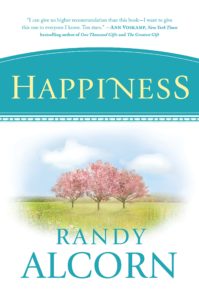How Indie Novels Can Beat $4 Coffee and Chase Joy

Ah, that was good. I just finished a cup of homemade coffee and an ebook.1 I paid little for each of these. But the experience was a priceless bit of God-given joy to start off my day.
That’s what coffee and ebooks should be: companion joys. As I wrote last week, I disagree with indie marketing slogans or memes that pit one joy against another. Some memes say, “If you would spend $4 on a coffee, you can buy an e-book. Support authors!” It sounds like, “Be good to make Jesus happy.” Or, “Buy only free-range chicken.” Or, “There are starving children in Sokovia who would love to read independently published novels like you can.”

Brutal honesty.
Such do-your-duty slogans don’t work for me. Why? I’m selfish and a defensive customer. “Buy ebooks, not coffee” slogans especially don’t work because I like most coffees better than most ebooks. Also, shops like Starbucks have proven track records of investments.
Many readers and indie novelists agreed. So now I’ll ask: If we can’t just negatively market against negative marketing,2 what positive novel marketing could work better?
I’d enjoy hearing your examples. Here, I can share how positive marketing works for me:
1. I chase happiness and joy.
I’ll spend the most time here because it is my most important reason.

Evangelical cover. Supra-evangelical truth.
Happiness, or joy,3 is the one goal every human on Earth is born to pursue.
Alas, we’re selfish and corrupted by sinful cravings. Those cravings twist our desire for joy.
But we keep chasing joy, even as we sinfully respond to our world or try to escape evils. Philosopher Blaise Pascal noted that even suicide is motivated by our happiness desire:
All men seek happiness. This is without exception. Whatever different means they employ, they all tend to this end. The cause of some going to war and of others avoiding it, is the same desire in both, attended with different views. The will never takes the least step but to this object. This is the motive of every action of every man, even of those who hang themselves.
Biblical Christians know we can’t fulfill our happiness/joy desire with sin. We can’t fulfill it with, say, materialism or spiritualism. Instead, God is the source of all joy. If we want joy apart from Him, we want an impossible universe. We want an upside-down square circle.
God shares His joys in three gifts He gives human beings:
- Himself (and the means to reconcile us with Himself through Jesus in the Gospel).
- His physical creation, including good gifts like food and marriage.4
- Things humans make out of creation—our culture that was God’s idea.5
God told humans to make culture. Our culture includes coffee, including franchise coffee shops and business and investment. And it includes stories, which includes indie novels.
So indie novels are God’s gift. They aren’t separate from His goodness, creativity, or Gospel.
Sure, people actually write the novels. They don’t write because God gave them specific guidance. Novelists are not inspired like the Bible’s authors were inspired. But even in a sinful age, in a sense, God does give us novels. And He gives us this gift for our enjoyment.
That is why I enjoy good novels. I don’t want good novels because I’m Supposed To, or to Support Authors. Yes, I may seek them because I’m “selfish”—that is, the sinful corruption of God-directed self-interest. But in Christ, I can also fight to be “self-interested” in the best way possible: By chasing joy/happiness in good novels, I can also chase the Joy-giver.
Marketing tips?
- Promise me glimpses of happiness and joy that I’m chasing despite my selfishness.
- If you are a Christian author, you need not use overt “evangelese” terms to do this.
 Avoid vague/overused adjectives about how the novel will make me feel (“a thrilling story” or “a page-turner”). Even genre terms like “speculative” can seem more like the language of industry pitches and not broad reader appeals. Show not tell, and all that.
Avoid vague/overused adjectives about how the novel will make me feel (“a thrilling story” or “a page-turner”). Even genre terms like “speculative” can seem more like the language of industry pitches and not broad reader appeals. Show not tell, and all that.- Tractor-beam me closer to your book’s specific heroes, plots, and worlds. Please use proper names and nouns with precise adjectives. For my part, I’d like to see 98 percent of this (even if it seems repetitious) and 2 percent or less “writer-speak.” This is not “marketing” proper, is it? You’re just sharing your story, so we can chase joy together.
2. I’m open to new experiences.
Sure, I can be self-defensive customer. When someone is promising to sell something that I know will profit themselves, up go my shields. But I also want to go on new and enthralling journeys into fantastical worlds with fantastical people I care about, so I can chase joy.
Marketing tips?
- Give me free glimpses. No, I do not mean give away books.6 I mean, give glimpses. Why don’t I see more frequent excerpts from indie novelists?
- Specifically, why not make your Facebook author page or Twitter account consist of 90 percent Best Novel Moments? Then follow with a short bookstore link. And that’s it.
- Again, to me this doesn’t feel like Marketing. It feels like introductions. It feels like “networking” in the least formal and best possible sense. You’re “networking” in joy.
- Surprise me. My theory: All those high-falutin’ Author Guide articles and seminars go all wrong about “how to make readers fall in love with your character.” Whether dark or light, hero or villain, people in novels only need do one thing to win: surprise me.

3. I also favor humility and trust.
In theory the main reason to “support” Christian fiction or indie novels is this: They offer a presumed Trust Advantage. In theory the argument goes: “Secular/traditionally published novels don’t reflect your beliefs/preferences. Here’s a better alternative.”
So goes the theory. In reality, Christian-published and indie novels must fight for my trust the same as any secular or traditionally published novel. Sometimes they must fight harder.
 Marketing tips?
Marketing tips?
- Positive marketing alone starts earning trust. This makes me think, “Here’s a person whose work I would enjoy, because I’m sure I would enjoy his or her positive company.”
- Humbly decrease. For example, what if an author vanishes backstage and only shows his or her novel excerpts? This seems to say, “I must decrease, and my story increase. This is truly not about me, but about the greatest possible (Godly?) joy of readers.”
- Show me things I’ll probably already like. Dozens of authors I follow already do this. They often share excellent nonfiction articles about biblical truth, reviews of fantastical stories, and geeky memes. They show they are not trying to hijack popular “fandom” or “geekdom” for marketing purposes. Instead they are fans themselves. They can’t help it.
- Get lost—in delight. One great lie in evangelical-dom is that humility looks like the worst kind of introversion: shrinking about, head bowed, no fun at parties. It’s not true. True humility occurs almost “automatically” but with practice, when we lose ourselves.
On the New Earth, no one will “act humble.” And as we chase eternal joy in Jesus Christ, humility won’t be a hard exercise. Instead humility will be as natural to us as breathing.
Of course, here where the air is thin, we need “respirators”—specific lessons about a thing called Humility. But occasionally, even here, the air thickens. We can breathe for a few seconds. For me, I catch myself “breathing” better when I lose myself in delight.
Indie novelists, that’s why I need your help. I don’t need guilt-based appeals, wordcount updates, publishing industry jargon, or reminders about myself in any way. I need your help to take me away from all those things, even with small pleasures: new heroes, new stories, new worlds. Yes, you’re in the writing/marketing business. But those things, like joy itself, serve a far greater end. Instead, you’re in the business of leisure, of godly Sabbath rest, of hinting at eternity—hinting of happiness and joy that reflects our joy-giving God.
- Alas, the book was not an indie novel. It was How People Change, a nonfiction gospel-counseling-oriented volume by Timothy Lane and Paul Tripp. ↩
- So meta. ↩
- Biblically the two concepts are identical, as Randy Alcorn points out here and in his book Happiness. ↩
- 1 Tim. 4:1-5. ↩
- Gen. 1:26-28. ↩
- In fact, despite all my own free ebooks, don’t book giveaways help little? There’s too much for me to read! ↩






































You wrote: You’re just sharing your story, so we can chase joy together.
I love this SO much! Thank you for this and the previous article. Thank you for speaking truth about the shaming memes. Man, I hate them, too. “If you’re not ashamed of Jesus, you’ll share this meme.” UGH!!!! I want to shout, “Stop! Just stop!” hahahaha!!
I’m planning to self publish my fantasy novel, so your posts have helped. I wasn’t sure how to handle things with marketing, but I’m making notes now. Yay! Thanks, again! 😀
You know, I read a lot of advice articles, and nobody has EVER suggested tweeting a lot of fun book excerpts before. That is stellar advice. One author I follow, Rachel Aaron, makes her funnier quotes into meme pics, and I enjoy them very much. Thanks for the great advice!
Thanks for a great post. “Surprise me.” YES! That capsulated something I feel but couldn’t articulate quite so succinctly. All of the this, the writing and the marketing, is such a challenge. But a fun one if you can set aside the pressure of the “sale”.
Thank you for this piece and the biblical distinction between “selfishness” and “self-interest”. Too many folks miss that. Have for so many years. Lewis dealt with this too in terms of Heaven. God wants us to look forward to the rewards in Heaven and work for them.
There are three types of marketing that I typically respond to:
1. Word-of-Mouth, especially if it’s coming from a trusted member of a fandom or fan community. I bought the (somewhat expensive) M.R. James collection “A Pleasing Terror” solely because it was regularly referenced on “A Podcast to the Curious.”
2. Plot synopses. Yes, every book has them, but, just like the books themselves, some clearly stand out from others. A synopsis that gets me to buy the book usually does the following:
– Briefly introduces me to the setting, plot and protagonist
– Implies whether the book’s overall tone will be funny or serious
– Raises questions; this is typically done by giving the protagonist a desire or goal and then stacking the odds against them to the point that I’m intrigued and asking myself how they’ll overcome these obstacles. Another common way to do this is by mentioning a mystery for the hero to solve or a (typically horrible or terrifying) secret that’s waiting to be uncovered; if done right, I’ll want to know the answers to the mystery or the nature of the secret, so badly, in fact, that I opt to buy.
3. Free excerpts. These give me an idea whether the novel actually lives up to the aforementioned word-of-mouth and/or synopsis.
What’s really great about this article is that it made me realize that an author isn’t limited to making these free excerpts available via sites like Amazon or SmashWords; they can put passages on their social media pages too; plus, they aren’t limited to passages from the beginning of the book like they would be with those Kindle Store samples.
I so enjoy that you used that image from Ratatouille. Perfect choice. That moment when one taste opened up a whole flashback of memory and nostalgia for the critic. A story excerpt can do that — engage our imaginations, delight us and transport us. I’ve believed for a while that this (sharing the story itself) is an approach that works well. Glad to see other people promoting it.